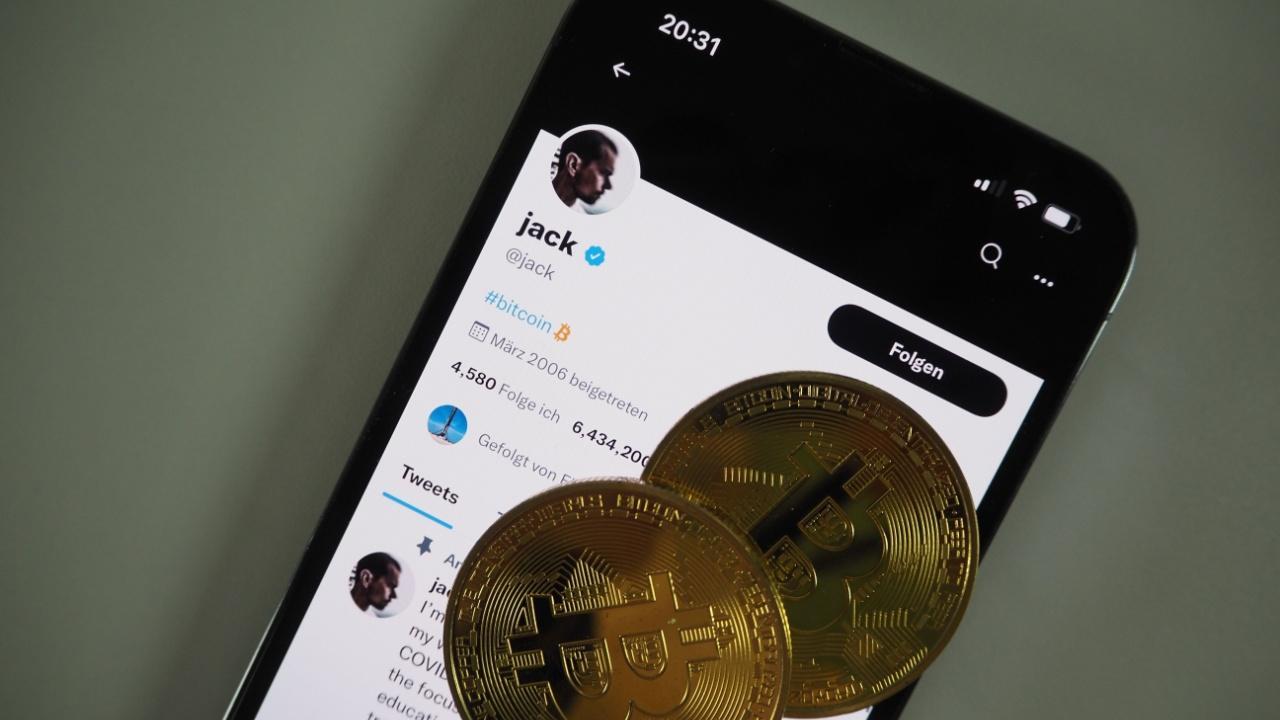
Square’s Bitcoin Leap: A New Dawn for Crypto Payments?
Introduction: From POS to Proof-of-Payment
The integration of Bitcoin into everyday commerce has long been a tantalizing prospect, yet one fraught with challenges. Volatility, scalability, and user adoption have all posed significant hurdles. However, Jack Dorsey’s Block (formerly Square) is making a bold move to bridge this gap. By onboarding merchants to accept Bitcoin payments through the Lightning Network, Square is positioning itself at the forefront of a potential revolution in digital payments. This shift could redefine how businesses and consumers interact with cryptocurrency, making Bitcoin a more practical and accessible option for daily transactions.
The Lightning Network: Speeding Up Bitcoin Transactions
The Lightning Network is the backbone of Square’s Bitcoin integration, addressing some of Bitcoin’s most persistent limitations. Traditional Bitcoin transactions on the blockchain can be slow and expensive, making them impractical for small, frequent purchases. The Lightning Network, a layer-two scaling solution, changes this dynamic.
By enabling off-chain transactions, the Lightning Network allows users to create payment channels that facilitate near-instantaneous and low-cost transactions. Only the opening and closing balances of these channels are recorded on the main blockchain, significantly reducing congestion and fees. For Square merchants, this means they can accept Bitcoin payments without the delays and high costs that have historically deterred businesses from adopting cryptocurrency.
The Lightning Network’s efficiency makes Bitcoin a viable option for everyday purchases, from coffee to groceries. This scalability is crucial for mainstream adoption, as it removes one of the biggest barriers to using Bitcoin in retail environments.
Square’s Bitcoin Playbook: Integrating Crypto into Commerce
Square’s approach to Bitcoin integration is comprehensive, aiming to create an ecosystem that benefits both merchants and consumers. Here’s a closer look at the key components of this strategy:
Bitcoin Payments via Lightning Network
The core of Square’s initiative is enabling merchants to accept Bitcoin payments through the Lightning Network. This addresses the fundamental issues of transaction speed and cost, making Bitcoin a practical option for everyday purchases. By leveraging the Lightning Network, Square ensures that merchants can process Bitcoin payments as seamlessly as traditional payment methods.
Bitcoin Conversion Program
Square is piloting a program that allows merchants to automatically convert a percentage of their daily sales into Bitcoin. This feature enables businesses to accumulate Bitcoin as part of their routine operations without actively purchasing it. Essentially, it turns everyday sales into a form of micro-investing, allowing merchants to build their Bitcoin holdings over time.
Bitkey Integration
Bitkey, Block’s self-custody Bitcoin wallet, is another critical component of the ecosystem. By integrating Bitkey with Square, Block aims to provide users with a seamless experience for managing and spending their Bitcoin. This integration promotes self-custody, empowering users to take control of their digital assets and reducing reliance on third-party custodians.
Focus on Bitcoin Mining
Square’s investment in Bitcoin mining reflects its broader commitment to the Bitcoin ecosystem. While mining may seem unrelated to payment processing, it plays a vital role in securing the Bitcoin network and contributing to its long-term sustainability. By investing in mining, Square is helping to ensure the robustness and decentralization of the Bitcoin network.
Impact on Merchants: New Customers and Reduced Fees?
For merchants, the potential benefits of accepting Bitcoin payments through Square are substantial. Here’s a breakdown of the advantages and challenges:
Attracting New Customers
Accepting Bitcoin can attract a new segment of customers who are passionate about cryptocurrency. These customers are often early adopters and tech enthusiasts actively seeking businesses that accept Bitcoin. By catering to this demographic, merchants can expand their customer base and tap into a growing market.
Lower Transaction Fees
Compared to traditional credit card processing fees, Bitcoin transactions via the Lightning Network can be significantly cheaper. This cost savings can be particularly beneficial for merchants with high transaction volumes, allowing them to retain more of their revenue.
Enhanced Security
Bitcoin transactions are cryptographically secure, reducing the risk of fraud and chargebacks. This security can provide merchants with greater peace of mind and reduce administrative overhead associated with disputes and fraudulent transactions.
Global Reach
Bitcoin is a global currency, meaning that merchants can accept payments from customers anywhere in the world without worrying about currency conversion fees or cross-border transaction restrictions. This global accessibility can open up new markets and revenue streams for businesses.
Challenges for Merchants
Despite these benefits, merchants must also consider the challenges of accepting Bitcoin payments. Bitcoin’s volatility can make it difficult for merchants to manage their holdings, as the value of Bitcoin can fluctuate significantly. However, Square’s conversion program mitigates this risk by allowing merchants to immediately convert their Bitcoin payments into fiat currency.
Regulatory uncertainty is another challenge, as the legal landscape for Bitcoin is still evolving. Merchants must stay informed about the latest regulations to ensure compliance. Additionally, some customers may be unfamiliar with Bitcoin and the Lightning Network, requiring merchants to provide education and support to help customers understand how to use Bitcoin for payments.
Broader Implications: Mainstream Adoption and the Future of Finance
Square’s Bitcoin integration has the potential to accelerate the mainstream adoption of cryptocurrency. By making it easier for merchants to accept Bitcoin payments, Square is lowering the barriers to entry for both businesses and consumers. This could lead to a significant increase in the number of people using Bitcoin for everyday transactions.
Furthermore, Square’s initiatives could have a profound impact on the future of finance. By promoting self-custody and empowering users to take control of their digital assets, Square is challenging the traditional banking system. This could lead to a more decentralized and accessible financial system, where individuals have greater control over their money.
Jack Dorsey’s vision of Bitcoin as the “currency of the internet” may be closer than ever before. Square’s Bitcoin integration is a major step towards realizing this vision. As more merchants and consumers adopt Bitcoin, it could become an increasingly important part of the global economy.
Concerns and Criticisms: Volatility and Centralization
Despite the potential benefits, Square’s Bitcoin initiative is not without its critics. Concerns about Bitcoin’s volatility remain a key point of contention. The price of Bitcoin can fluctuate wildly, which could make it risky for merchants to hold Bitcoin for extended periods. While Square’s conversion program mitigates this risk, it also means that merchants may not fully benefit from potential Bitcoin price appreciation.
Another concern is the potential for centralization. While Bitcoin itself is decentralized, Square is a centralized company. Some critics worry that Square’s dominance in the POS market could give it undue influence over the Bitcoin ecosystem. If Square becomes the primary gateway for Bitcoin payments, it could potentially censor transactions or impose its own rules on the network.
However, it’s important to note that Square is not the only company working on Bitcoin payment solutions. There are many other companies and developers building innovative tools and services that promote decentralization and user autonomy. The competitive landscape ensures that no single entity can monopolize the Bitcoin ecosystem, fostering a more diverse and resilient network.
Conclusion: A Pivotal Moment for Bitcoin
Square’s rollout of Bitcoin payments represents a pivotal moment for the cryptocurrency. By leveraging the Lightning Network and integrating Bitcoin into its popular POS system, Square is making Bitcoin more accessible and usable for millions of merchants and consumers. While challenges remain, the potential benefits are undeniable. This initiative could accelerate the mainstream adoption of Bitcoin and pave the way for a more decentralized and accessible financial system.
The future of payments is being reshaped before our eyes. The question isn’t whether Bitcoin will have a place, but how big that place will be. Square’s bold move is a testament to the growing confidence in Bitcoin’s potential to revolutionize commerce and finance. As the world watches, the cryptocurrency landscape is poised for a new dawn, one where Bitcoin plays a central role in the global economy.





